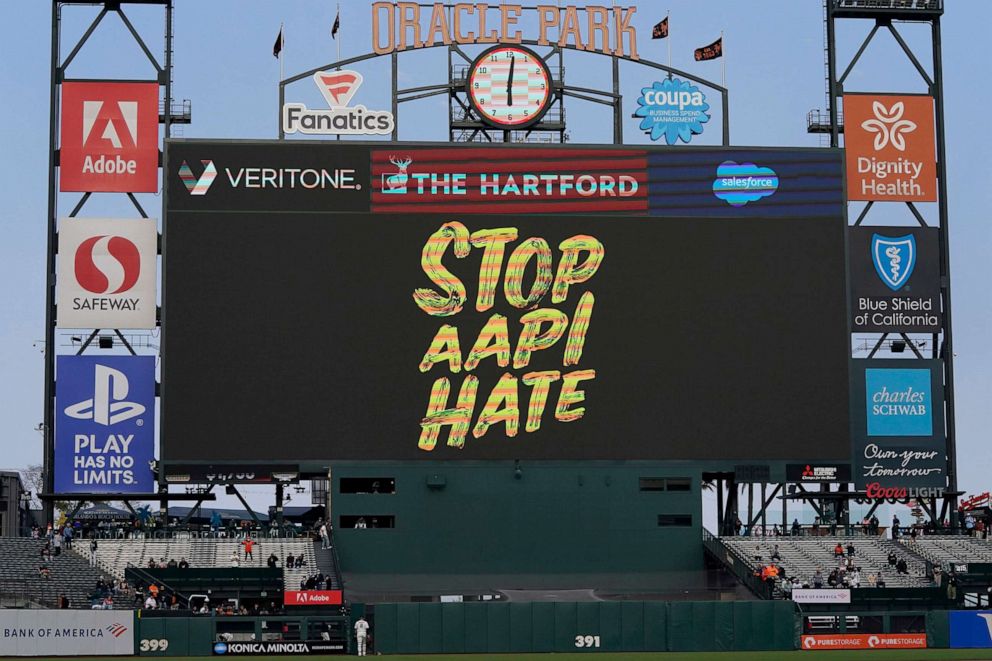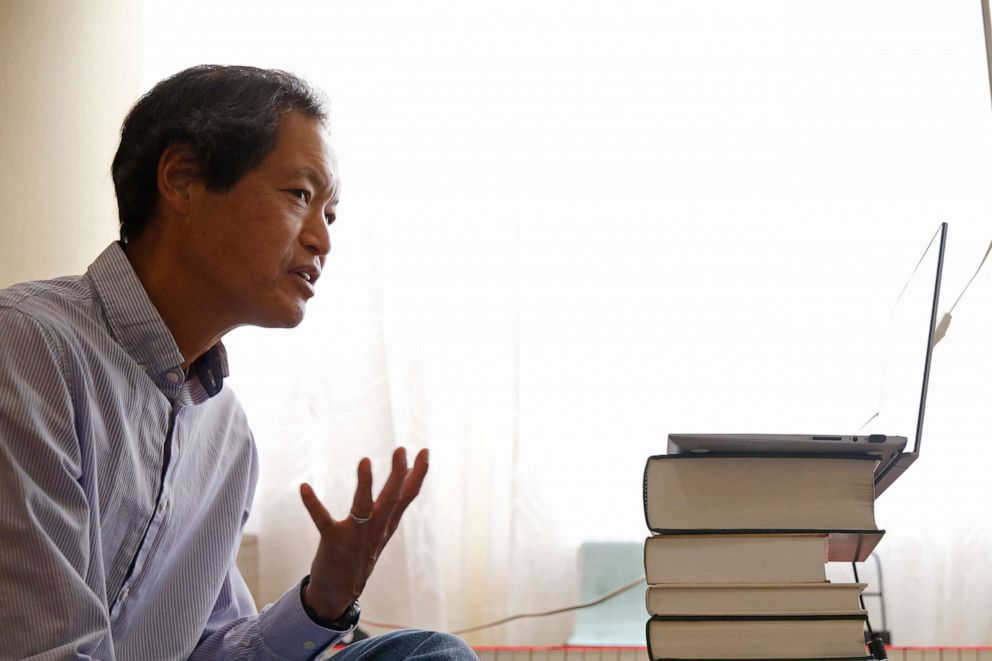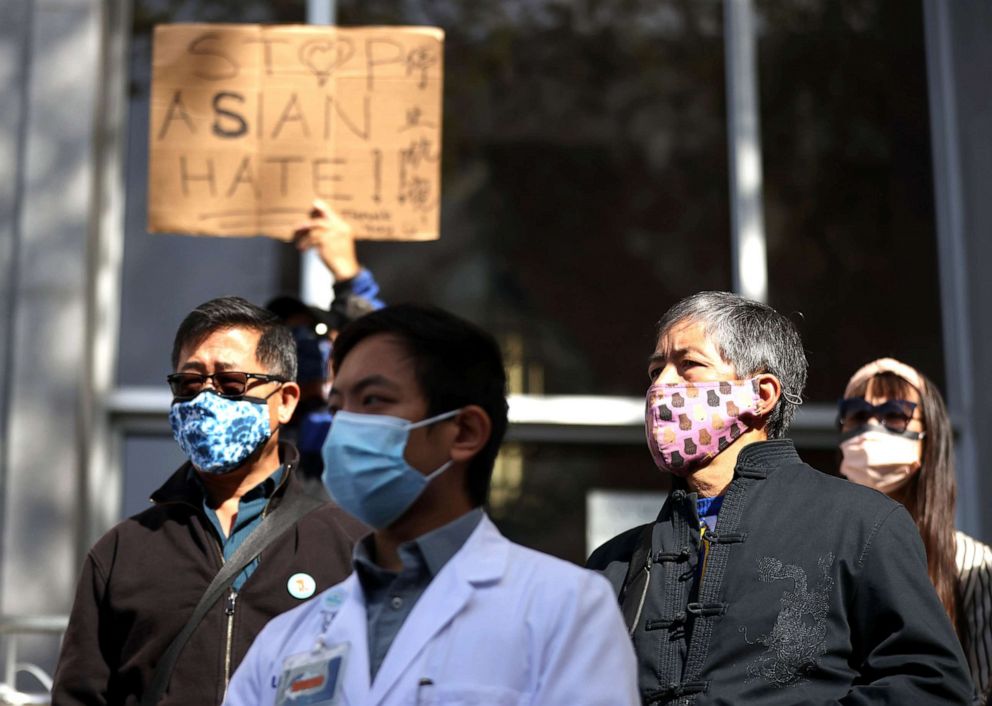Advocates turn to public health approach to combat anti-Asian hate
The goal of the policies is to help the community, not put more people in jail.
Stop AAPI Hate has become a leading force in tracking and addressing the rise in anti-Asian attacks in communities across the country.
The leaders behind this group are taking to the California legislature to turn this community-driven effort into legislation with its No Place for Hate policy initiative.
Unlike other legislative proposals, the group and legislators they're working with are not focusing on new criminal laws, but rather public health and research initiatives. The idea is to work on community building and other initiatives rather than putting more people in jail.
"Anti-Asian racism exists -- it's systemic, and it's pervasive, and it's sinister," said Cynthia Choi, co-founder of Stop AAPI Hate. "Members of our communities don't feel free to walk on the sidewalks, to take public transit, to go grocery shopping."
Between March 2020 and December 31, 2021, Stop AAPI Hate has recorded more than 10,000 reports of hate incidents against Asian American and Pacific Islander (AAPI) persons across the U.S. This is markedly higher than the number of reported hate crimes, which advocates say are undercounted.
Several tragedies including a Dallas salon shooting that targeted three Korean women, and the mass shooting that left eight people dead at three Atlanta-based Asian-owned or operated spas in 2021 have highlighted the growing, deadly nature behind anti-Asian hate.

This kind of hate has particularly impacted Asian American communities in California. In San Francisco, for example, anti-Asian hate crimes saw an astonishing 567% from 2020 to 2021, according to Mayor London Breed.
"One of the things that we believe in fundamentally is that we all deserve to feel safe and to move about freely without being targets of hate and harassment," Choi said.
The No Place for Hate initiative includes three bills that target the kinds of places where these hate incidents are happening frequently: AB 2549 which declares street harassment a public health problem; SB 1161, aiming to protect the safety and welfare of public transit passengers; and AB 2448 to end harassment in businesses.
The Ending Street Harassment Bill, AB 2549, declares street harassment a public health issue, and will fund research and programs to prevent common forms of harassment.
"If you think about what it means for women and the AAPI community and others to be going down the street, there's no recourse to be able to share that you've been verbally assaulted," Assemblymember Mia Bonta told ABC News.

Bonta and Assemblymember Al Muratsuchi, who helped author the bill, say a public health approach allows for solutions to focus on education and building community, rather than putting more people into the criminal justice system.
"There have been many Asian American community organizations that have expressed concerns about focusing on criminal laws as tools to address the issue of hate crimes," Muratsuchi told ABC News. "That's why we're taking this innovative public health approach."
The Increasing Safety for Public Transit Riders Bill, SB 1161, will require transit agencies to gather data on ridership and rider safety. That data would then be used to implement solutions that could address the harassment and assaults that people have experienced while using public transit.
State Sen. Dave Min, the author of the bill, told ABC News that a lot of women from all backgrounds have been reporting that they feel unsafe or have been repeatedly harassed while using public transit.
"They've had to change their routes to avoid being stalked or harassed or followed, so this is a chronic problem," Min said.
He said the legislation doesn't direct transit officials to take any specific kind of action, but looks toward the collected data to propose the best solutions: "Should we have more security at certain places? Should there be training for transit operators on what to do in the event that someone reports harassment to them?"
The Expanding Civil Rights Protections at Businesses Bill, AB 2448, would direct businesses to develop and implement protections against discrimination and harassment for customers.

These bills are currently being reviewed and debated by their respective committees.
"It's important for us to do more than just put out slogans and develop hashtags," said Bonta. "It's incredibly important for us to develop viable solutions that have the weight of impact and an opportunity to change people's everyday experience."
They say these bills don't just solve the anti-AAPI hate issue, but reach further to offer solutions to the same issues many marginalized people from different backgrounds have also been experiencing.
Choi calls it "cross-solidarity, community-building work."
"Everyone including women of color, people with disabilities, the young, the elderly, the LGBTQI community -- we want to be able to walk to the park, to take public transit, shop, care for our families, and live our lives without being harassed and so our bills really speak to that," Choi said.
The organization hopes it will set an example for states across the country that are grappling with anti-Asian hate, though several cities have begun to make strides in these efforts.
"At the end of the day, what we what we firmly believe is that it's not one piece of legislation, it's not one intervention -- we need to take a whole of society approach to addressing all these forms of harm," Choi said.




